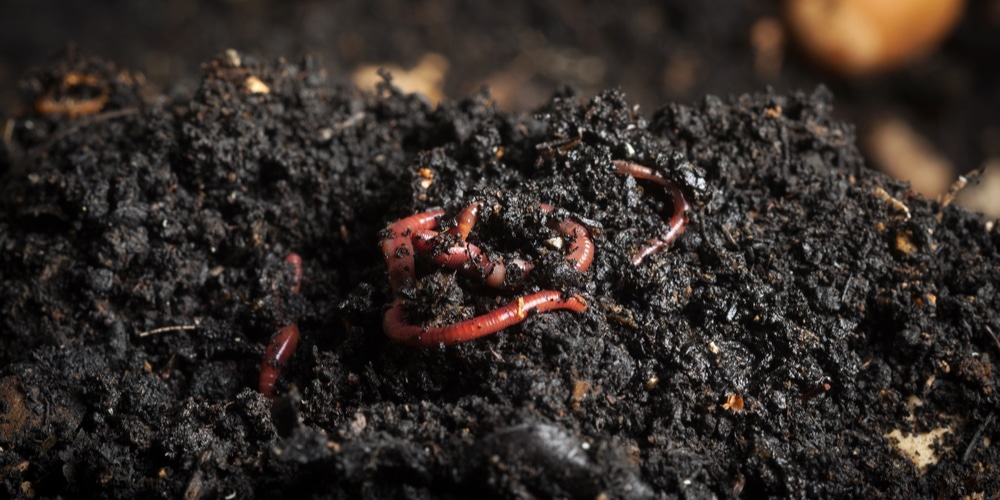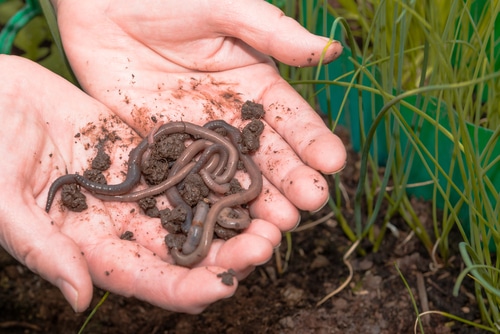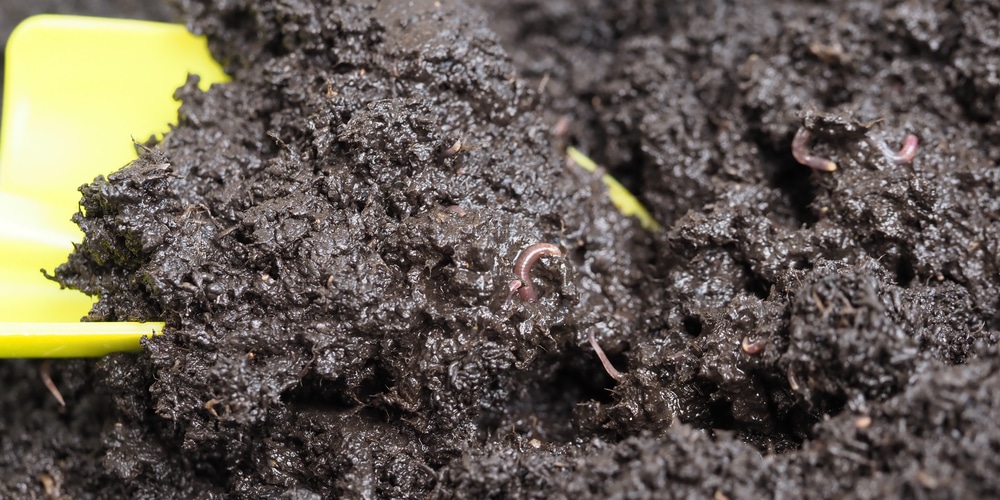Earthworms are essential elements in the health of any soil: they eat decaying or dead organic matter and create tunnels while aerating the substrate. Additionally, they add organic materials full of macro and micronutrients to the soil.
So the presence of earthworms in your garden contributes to creating an optimum growing environment for your plants.
But do earthworms eat plant roots? And what should you know about their role in your garden?
If you don’t know, don’t worry! Here, you’ll find everything you need to know about the subject!
Earthworms and Plant Roots: What Should You Know?

You may or may not know this, but there are different species of earthworms, each of which likes to burrow in different directions.
For instance, some make shallow burrows and devour surface litter, while others prefer digging several feet deep down (in a vertical manner). Others again move horizontally.
But regardless of the methods, earthworms allow water and air to penetrate the soil better, which helps make space for root growth. After all, plants need water and oxygen to carry out photosynthesis, a process crucial for their development.
Also, earthworms dig nutrients and minerals and make them more accessible to your plants, boosting their growth.
But will they eat your plants’ roots?
Well, the truth is that earthworms prefer consuming dead matter. They might eat tiny amounts of plant roots, but only if they don’t find anything else to eat.
Still, they tend to be too rich in nutrients and hard, making it challenging to digest them, meaning they will prefer to skip them if they can.
So, earthworms will never be a threat to your plants.
But if you put them in containers, they might start eating your plants’ roots once they run out of dead organic matter.
For this reason, you must avoid adding earthworms to your houseplants: they do better outdoors and won’t thrive in pots. Plus, they might cause more damage than good under such circumstances.
What Do Earthworms do To The Soil?
Earthworms are necessary for the decomposition of organic materials. By eating dead organic matter, they produce worms castings that help nourish new plants and boost the growth of your garden in a circle of activities that create more organic material and ensure healthier soil conditions.
Plus, worms move the soil around, making nutrients more accessible to your plants. Because they create tunnels, they prevent the substrate from being too compact, contributing to oxygenating the soil.
Attracting Earthworms to Your Garden: All You Must Know
Earthworms are one of the best things to improve your soil. But how can you attract them to your garden?
To begin with, you must keep your plants well-watered. Adding mulch around them can help retain moisture and make the environment more attractive to earthworms, as they like damp environments.
Also, the pH should be above 4.5: worms prefer alkaline areas. If necessary, consider adding lime to offset acidic substrates! Doing so will also add calcium, which earthworms need to thrive!
Finally, you can attract earthworms by adding organic matter to your yard and feeding them: place shredded leaves, grass clippings, and compost around your plants. Don’t forget to avoid using synthetic fertilizer and pesticides!
The Bottomline: Do Earthworms Eat Plant Roots?
It is unlikely that earthworms will eat live plant roots. After all, these insects don’t have teeth, making it impossible for them to munch and digest them! Instead, worms live off the bacteria, algae, and nutrients they find in the soil, even if coming from decaying materials or dead animals.
Because they don’t eat roots, you shouldn’t worry about worms damaging your plants. The truth is that worm damage is an inexistent problem. Instead, earthworms will contribute to improving the quality of your soil. Adding more organic material, aerating it, and minimizing the risk of compaction.
With that said, some types of insects might eat your plants’ roots and cause severe damage. If you suspect your plants are dying because of problems at their root, ensure you check to learn what’s causing the issue.
For instance, cutworms can kill several plants during the hot months of the year. Despite their name, cutworms are caterpillars that turn into moths. In general, problems with plants’ roots might result from overwatering, fungal infections, bacteria, or other insects.

